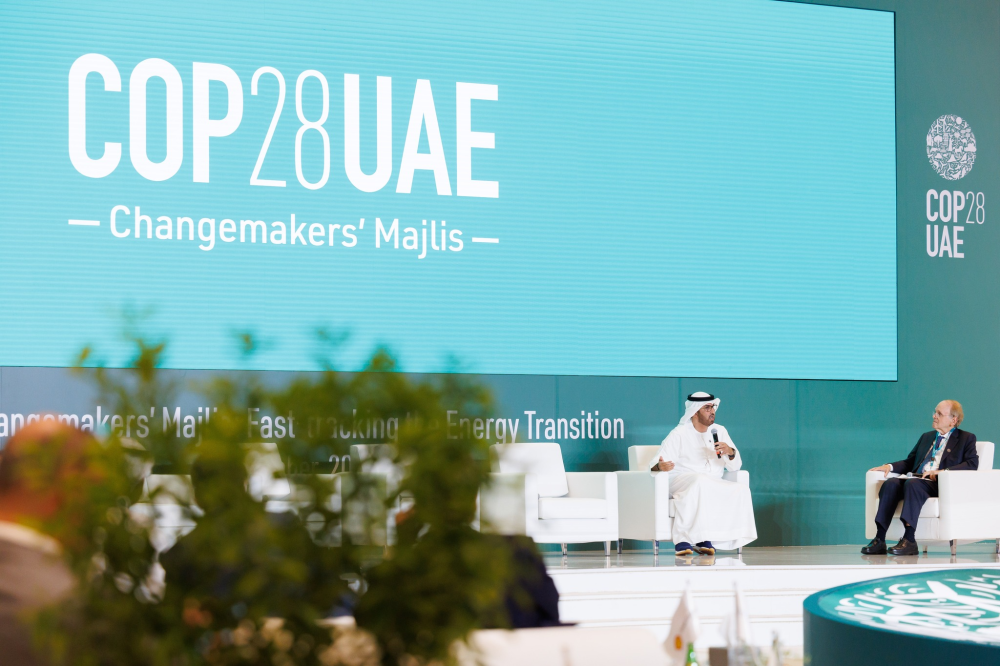More needs to be done to meet Paris Agreement goals and COP28 will be the battleground
USHAR DANIELE
KUALA LUMPUR - Findings from the latest report by the United Nations Climate Change has concluded that national climate plans still remain insufficient to limit the global temperature rise to 1.5 degrees celsius to meet the goals of the Paris Agreement.
The report released today showed that while emissions are no longer increasing after 2030 compared to 2019 levels, there has not been any demonstration of the rapid downward trend that is necessary in this decade.
The release of the synthesis report sets the stage for the largest climate summit COP28 in Dubai later this month where findings from the report showed much more action was needed to ‘bend’ the world’s emission trajectory further downward.
In a statement released today, UN Climate Change Executive-Secretary Simon Steill said the report showed that while commitments were taken by governments to take baby steps to avert the climate crisis, governments must make bold decisions at COP28 to get on track.
Steill said the report this year shows where progress was slow but also points out the available solutions and tools put forward by countries, adding that billions of people expect to see their governments pick up this tool box and putting it to work.
“This means COP28 must be a clear turning point and governments must not only agree what stronger climate actions will be taken but also start showing exactly how to deliver them,” he said.
This year’s COP28 will see the first ever global stocktake taking centre stage and according to Steill, this is where nations can regain their momentum to scale up their efforts across all areas and get in track with achieving goals of the Paris Agreement.
“The stocktake is intended to inform the next round of climate action plans under the Paris Agreement better known as the nationally determined contributions (NDCs) to be put forward by 2025, paving the way for accelerated action.”
The UN Intergovernmental Panel on Climate Change in its latest studies indicated that the greenhouse gas emissions needs to be slashed by 43 per cent by 2030 compared to 2019 levels and this is a critical move to limit temperature rise by 1.5 degrees celsius by the end of the century to avoid the worrying impacts of climate change which includes more frequent and severe droughts, heatwaves and rainfall.
“Every fraction of a degree matters, but we are severely off track. COP28 is our time to change that,” Stiell said.
The UN Climate Change analysed the NDCs of 195 Parties to the Paris Agreement, including 20 new or updated NDCs submitted up until 25 September 2023 and in line with the findings from last year’s analysis, the latest findings shows that while emissions are no longer increasing after 2030, compared to 2019 levels, they are still not demonstrating the rapid downward trend science says was necessary this decade.
COP28 President Designate Dr Sultan Al Jaber said the latest synthesis report of national climate plans underscored the need for us to act with ambition and urgency to meet the goals of the Paris Agreement, emphasising that there was simply no more time left for delays.
“COP28 must be a historic turning point in this critical decade for Parties to seize the moment of the Global Stocktake to commit to raise their ambition and to unite, act and deliver outcomes that keep 1.5C within reach, while leaving no one behind.”
Steill said the global stocktake can be a benchmark for plans ahead, forging the way for COP28 to be a gamechanger and provide a springboard for a two-year climate action surge.
Last year’s president designate and Egyptian Foreign Minister Sameh Shoukry said the NDCs remain the cornerstone of a shared vision to achieve the Paris targets which includes retaining the target of below 2 degrees and aspirations to limiting increase to below 1.5 degrees.
Sameh said last year, at the Sharm El-Sheikh conference, leaders discussed several initiatives to assist with reaching the goals, as well as assist the Global South in adapting their economies accordingly.
“We need to keep the momentum going as there is no time to waste or lose focus on the target and while it is essential we pursue our undertaking to continue to seek climate justice and assist the Global South that contributes the least in emissions yet bear the brunt of the most vicious effects of climate change, to not only survive but also transition into more sustainable economy through just transition pathways,” Sameh said.
In a separate report on long-term low-emissions development strategies released by UN Climate Change, it analysed countries’ plans to transition to net-zero emissions by or around mid century in which the report showed that these countries’ GHG emissions could be roughly 63 per cent lower in 2050 than in 2019 if the long-term strategies are fully implemented according to schedule.
Current long-term strategies, representing 75 Parties to the Paris Agreement, accounts for 87 per cent of the world’s gross domestic product, 68 per cent of global population in 2019, and around 77 per cent of global greenhouse gas emissions in 2019.
While this may be an indication of a strong signal that the world is starting to aim for net-zero emissions, the report however notes that many net-zero targets remain uncertain and postpone into the future critical action that needs to take place now.










